Why Editing Chickens’ Genes Is a Cockamamie Idea
It’s been flapping around in the news that some experimenters think changing chickens’ genes will fend off avian influenza (bird flu). How about having respect for these remarkable birds rather than tampering with their DNA in order to keep using them for food? Editing chicken genetics, which only might make the birds less susceptible to disease, is highly problematic in multiple ways.
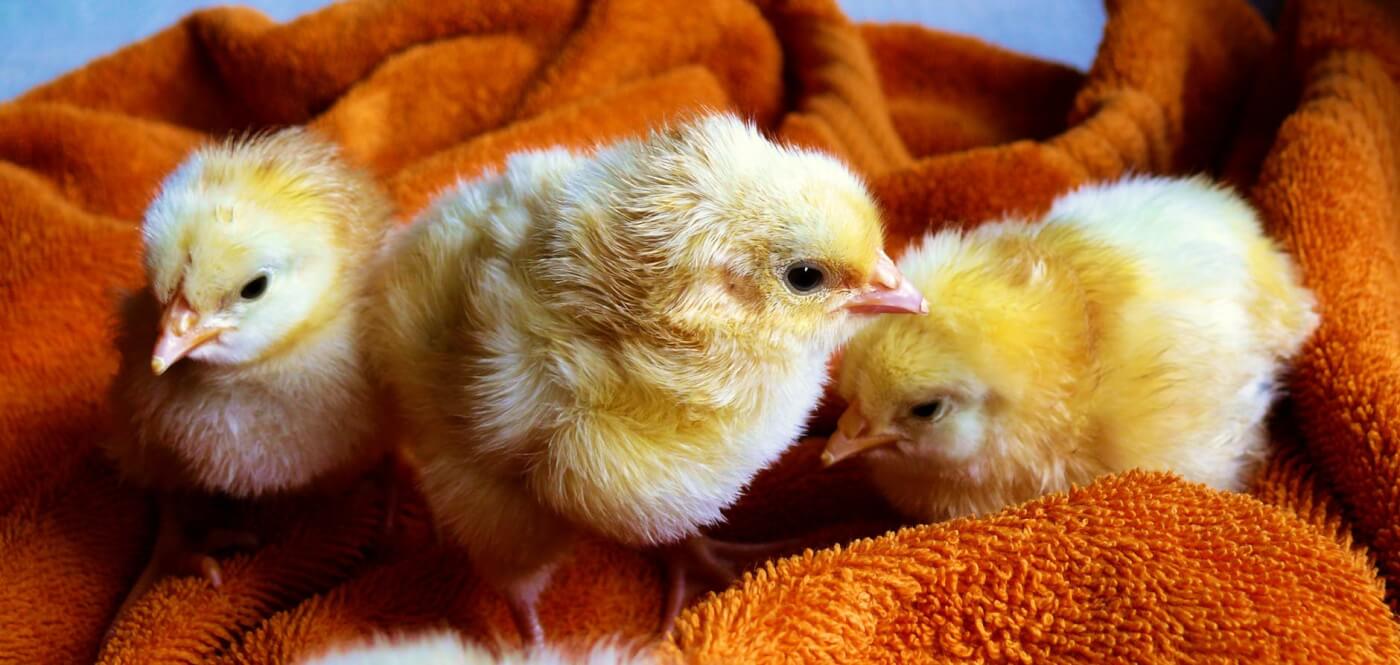
Five Reasons Not to Edit Chicken Genetics
- It violates individuals: Chickens are living, feeling beings who shouldn’t be bred, exploited, and killed for food or anything else. Too often, deceptive labels like “humane,” “organic,” or “free-range” are used to distract consumers from the egregious misery that the meat and egg industries inflict on these remarkable birds. PETA has campaigned for decades to increase kindness toward them.
Chickens are smart, social, and sensitive individuals, each with a distinct personality and capable of experiencing love, joy, sadness, and pain—yet they’re among the most abused animals on the planet. From the moment they hatch, billions of chickens raised for food each year are forced to endure enormous suffering, just for a fleeting taste of their flesh.
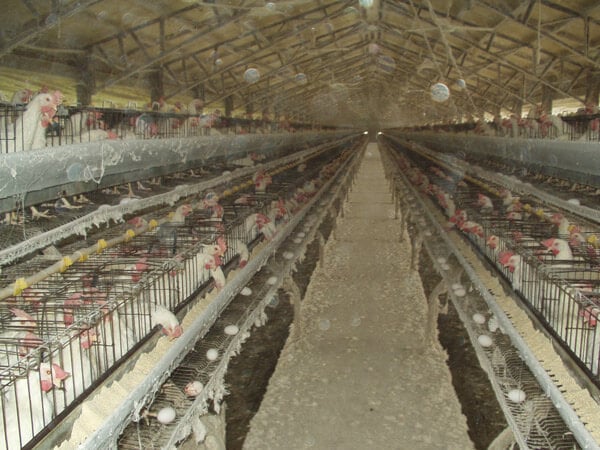
- It worsens the climate catastrophe: Editing genes in newly bred chickens perpetuates breeding more animals. This escalates environmental destruction due to having to feed them as they grow, manage their waste, transport them to a slaughterhouse, kill them, and process and ship their corpses as food.
Raising billions of chickens on farms for food produces enormous amounts of excrement every year. Oregon State University agriculture professor Peter Cheeke says that today’s farming amounts to “a frontal assault on the environment,” which leads to widespread fecal pollution of land and water.

- It squanders tax money: Spending tax dollars on changing chickens’ genes—as the National Institutes of Health does on other tests on animals—is a wasteful expansion of the vivisection industry. That money would be better used to benefit animals, human health, and the planet.
- It wastes valuable time: Scientists should spend their time on meaningful and compassionate research—as laid out in PETA’s Research Modernization Deal. Damaging experiments like altering chickens’ genes would cause long-term harm, whereas human-relevant research that doesn’t involve other animals would bring about useful scientific advances.
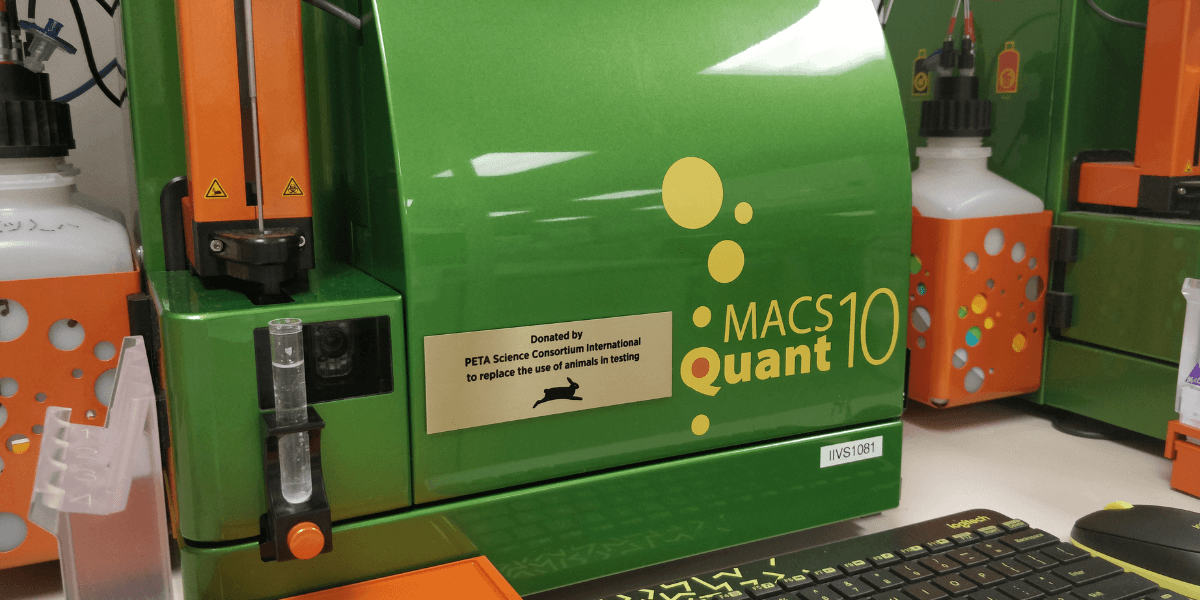
- It stirs up potential pandemics: Reconfiguring chickens’ genetic makeup—which requires experimenters to be in close proximity to birds in potentially dangerous ways—could lead to future pandemics. And since all viruses, including bird flu, mutate, it could find a way around genetic manipulation.
Birds used in the chicken industry and crowded into confinement have a high likelihood of contracting and carrying diseases, including avian flu, chronic respiratory illnesses, and bacterial infections. The answer isn’t to alter their genes—it’s to stop exploiting them for food.
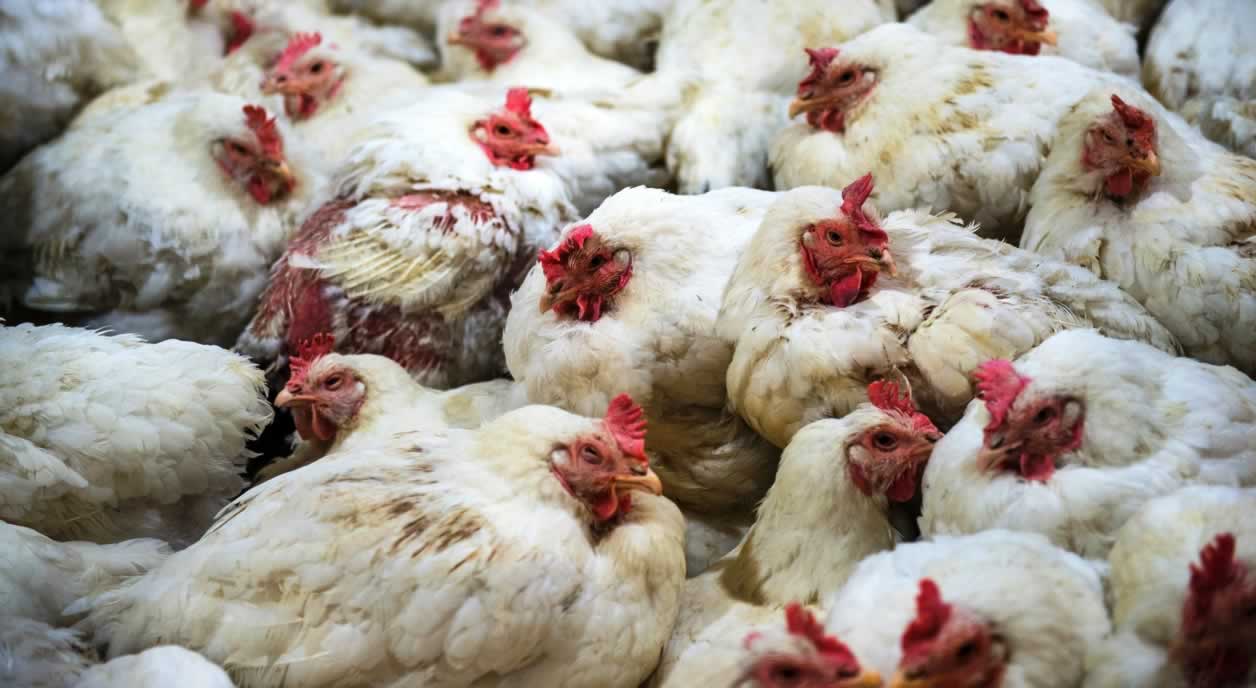
Why Tampering With Chicken Genetics Is Cruel
We should respect chickens for who they are, rather than trying to change them. Besides, by breeding them for specific characteristics, humans have already done horrible damage.
Chickens love their families, value their lives, and are always looking out for others in their flock. They “talk” to their chicks while they’re still inside the shell and have unique calls to warn others of danger coming by land or air. They comprehend cause-and-effect relationships and understand that objects still exist even after they’ve been hidden from view. Inquisitive and intelligent, they have complex social structures as well as adept communication skills and can recall the faces and “pecking order” of over 100 other birds.
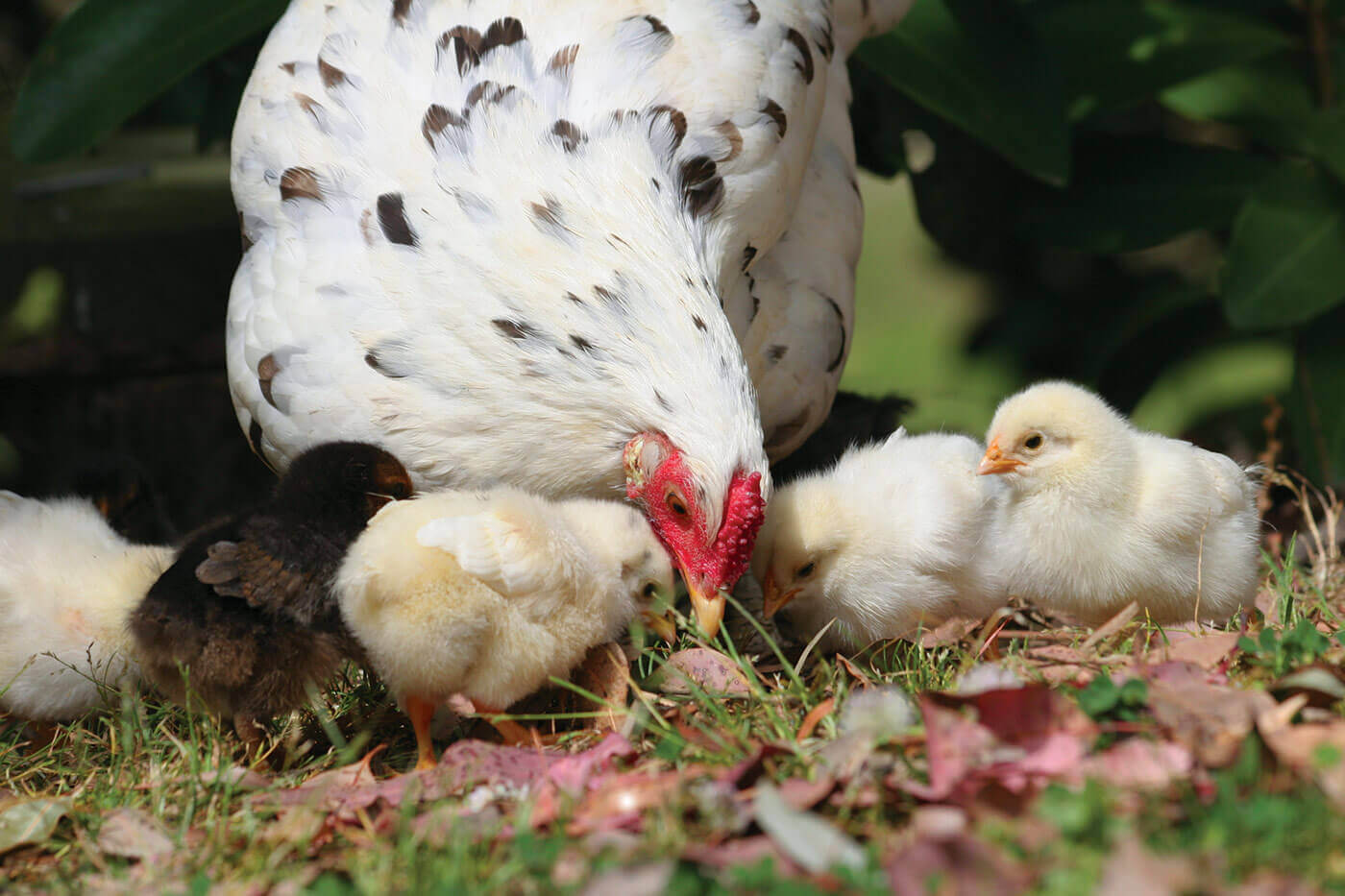
Focusing on how chickens could be changed to serve speciesism overrides compassion for and curiosity about them as individuals. Choosing kindness instead of using them for food would be better for everyone. Every animal—including every chicken—is someone.
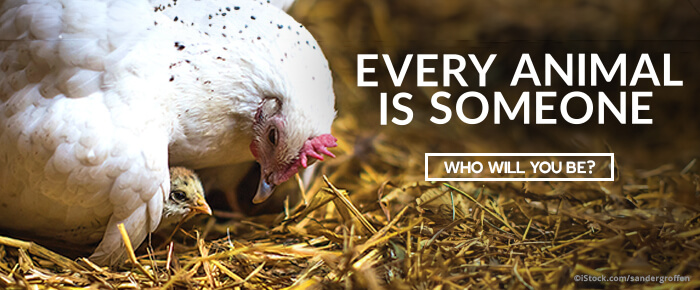
Help Stop the Spread of Bird Flu
Crowded farms and filthy slaughterhouses are instrumental to the transmission and mutation of the bird flu virus, so our best bet at curbing its spread is to stop eating chickens and their eggs. Replacing them with animal-free options is the only way to be safe. And it’s easy to choose vegan chicken products. Have compassion for birds by ordering PETA’s free vegan starter kit:

